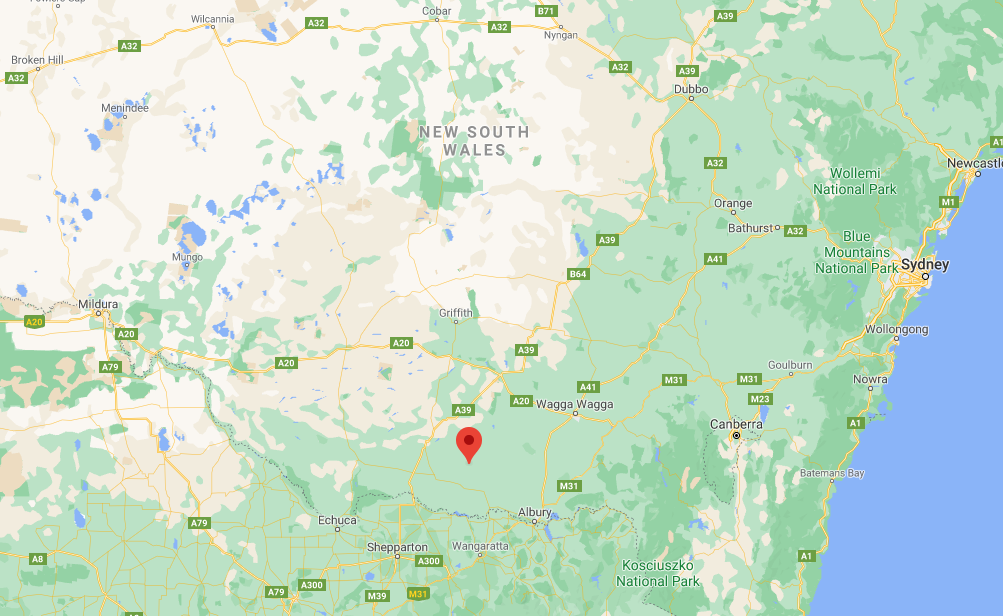This is a personal story upon which I reflect around ANZAC Day every year. It’s about the importance of our ADF engaging with the community at the time of year that the community engages the most with us.
In 2013 I was posted to Bandiana. In the usual requests for community support I picked up a task to head out to the little town of Oaklands in regional NSW to participate in the march and speak at the service. I’d been provided with a generic speech, a work car and told to wear service dress. At that time Army had been given the direction not to drink in uniform; so this, coupled with the service vehicle meant my 2013 ANZAC Day was going to be drier than a mouth full of Sao biscuits.

My serving spouse was deployed and I had time on my hands so there was no excuse to not have a go at personalising the speech a bit. I asked my point of contact in Oaklands to send me a photo of the town’s honour roll. There were 19 names on the list from WW1. Losing 19 soldiers from a small country town (even though it would have been larger back then than it is today) would have had a huge impact on the community and it would have been the same for the majority of towns across the country.
I randomly chose the name Private Samuel Lindsay Nixon from the list and ran a search for his name in the Australian War Memorial search engine. Private Samuel Nixon was a local farmer who became a stretcher bearer in the trenches of Northern France. After spending 11 months away he died of wounds received from a shell blast while bandaging a fellow soldier. He’s now buried in Vignacourt in France.
When I got to Oaklands the whole town was at the march. The local town house burglar could have nicked anything he wanted if he wasn’t at the march as well. Just before the march started, a boy from the local primary school came up to me and asked me what I got my medals for. I responded 'This one’s for active service, this one’s for (etc, etc ...) and this last one’s for spending four years in the Army.' At which point the boy interrupted me and said 'WOW! You’ve spent four years in the Army!' Important lesson for all of us: the ADM symbolises more than many of us think.
Living out my childhood dream of being an RSM I did the yelling thing and quick marched the four local vets with school kids in tow down the main street. In the Memorial Hall after the march I gave my speech at the usual spot in the service. I spoke about Private Samuel Nixon, the impact that the 19 deaths would have had on the town, the importance of reflecting on their sacrifice (I wasn’t the dedicated reflectionist back then that I am now thanks to Cove+) and how Australia does an amazing job looking after its war graves around the world.
After the ceremony a frail old lady was assisted over and said to me ‘That Samuel Nixon you spoke about, he was my uncle. I remember my parents telling me stories about him'. It was great to have made that connection with a relative of the soldier I spoke about.
That one interaction changed my view on the role of serving ADF members on ANZAC Day. I think it's just another opportunity for us to serve the community. For the rest of my completely sober day I was welcomed by the people of Oaklands and it was made very clear to me many times that they appreciated a serving member to share their ANZAC Day with.
ANZAC Day means different things to different people and everyone defines ‘a good ANZAC Day’ in their own way. Sadly; not every town or suburb’s service gets a uniformed member of the Defence Force. I reckon that every single one of us has a desire to give to our community, so if you have the chance to dedicate your ANZAC Day to a support task or a community that you know, then grab it with both hands. The community will appreciate your support and there’s a good chance it’ll help your own reflections every year around the 25th of April.
Lest we forget.
Here at The Cove we know that reflection is a powerful tool to self-development. If you haven’t checked it out yet, have a look at our Reflective Practice One Stop Shop page. Also, Major General Chris Field recently gave us a very personal insight into his reflection routine. I’d argue that if Major General Field has time to build reflection into his routine then we all do!










I visited a school, years ago, to deliver an Anzac Day speech and speak to the kids, as many of us have. What I wasn't aware of, or prepared for, was that a family of the school had lost their husband/father in Afghanistan some years prior. To have a serving member as an official part of their service meant a great deal to the school community and may have had an even more profound effect on me.